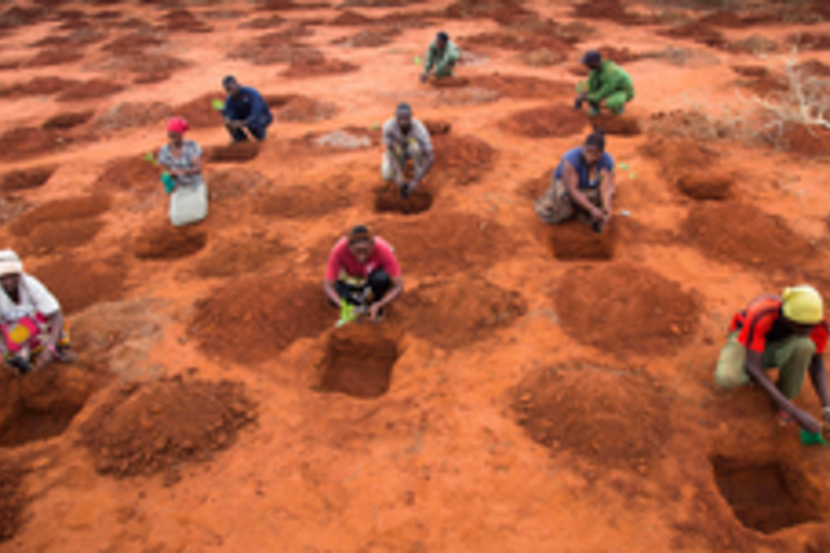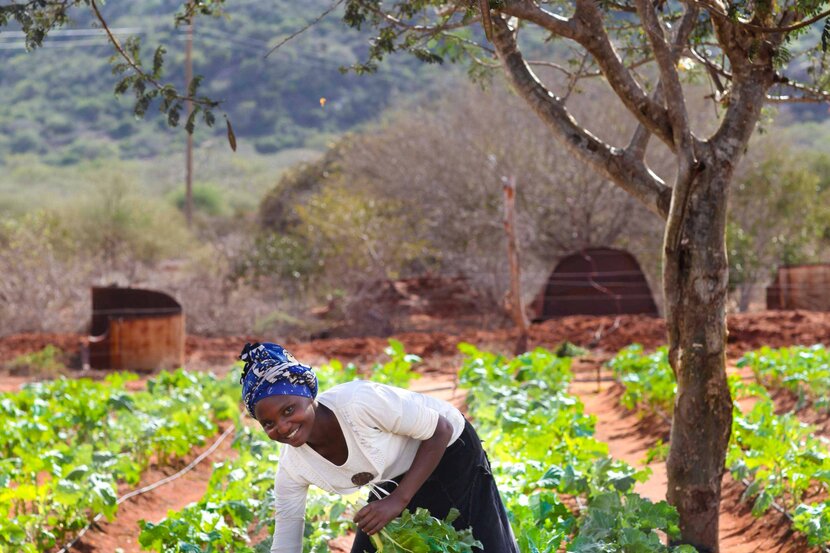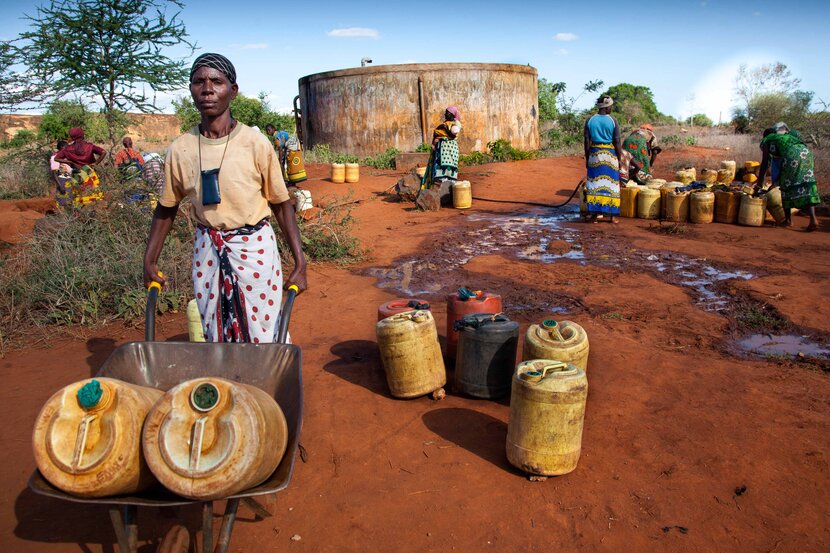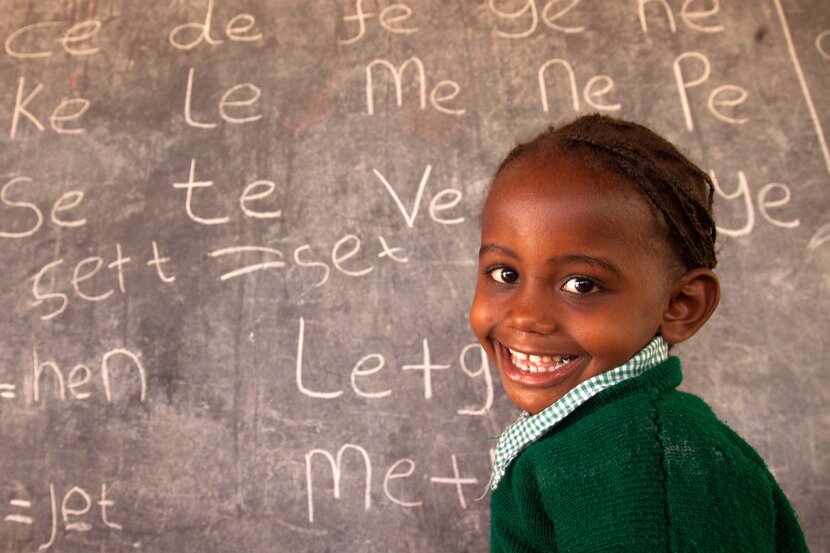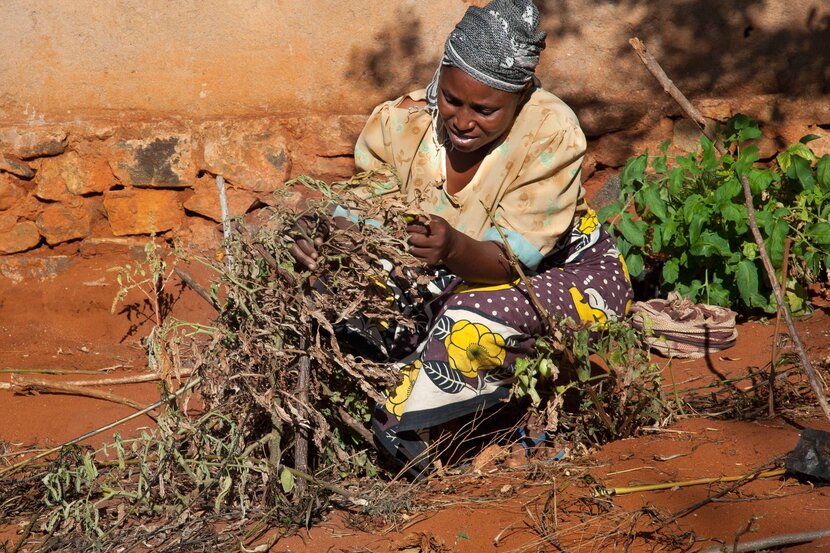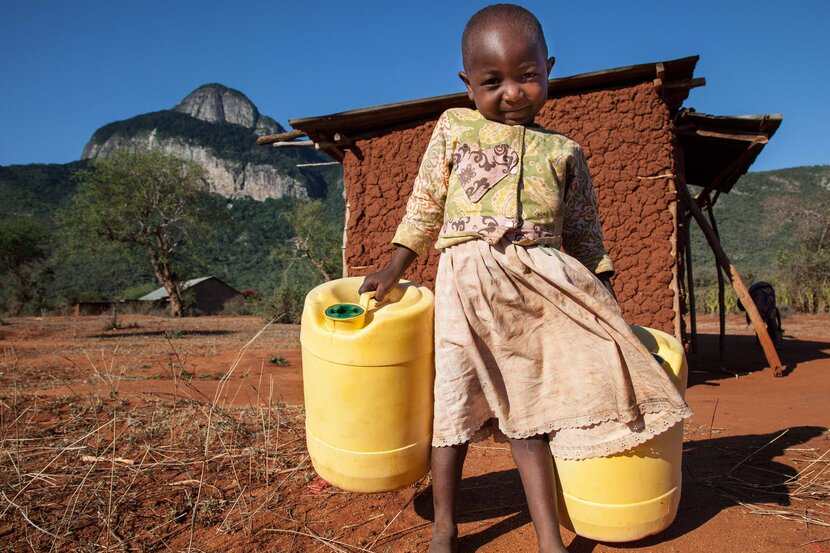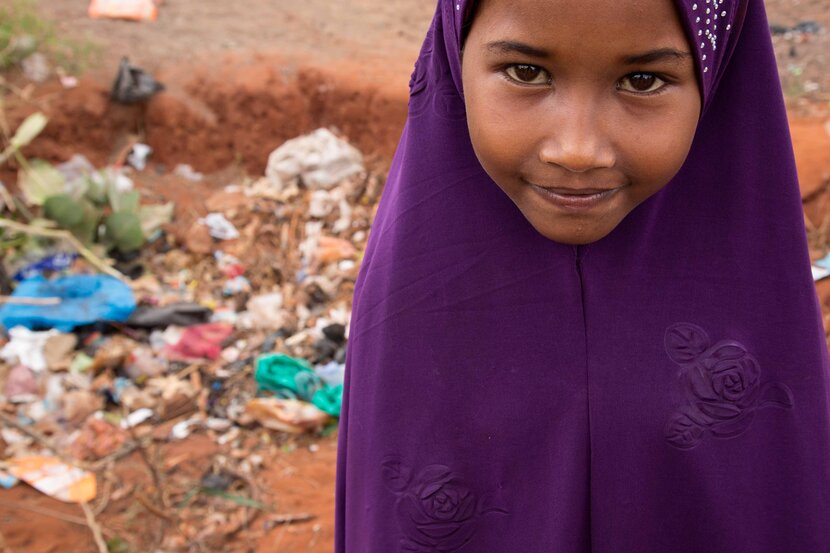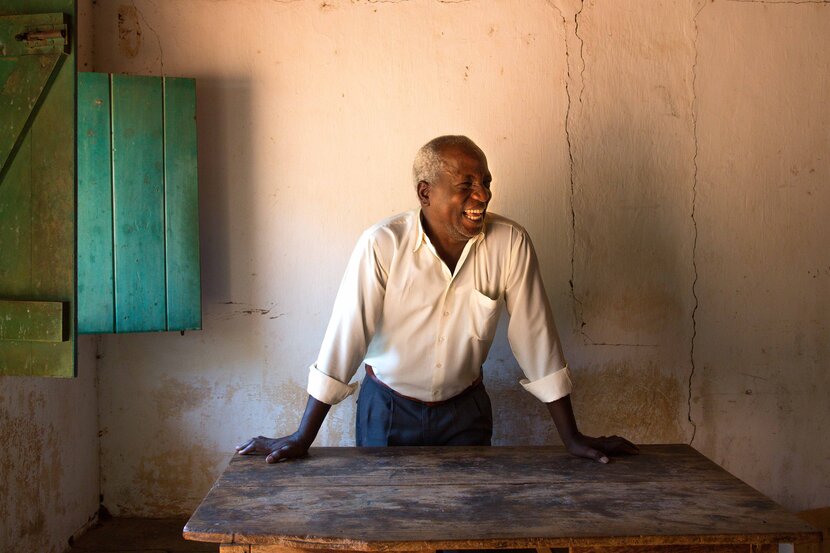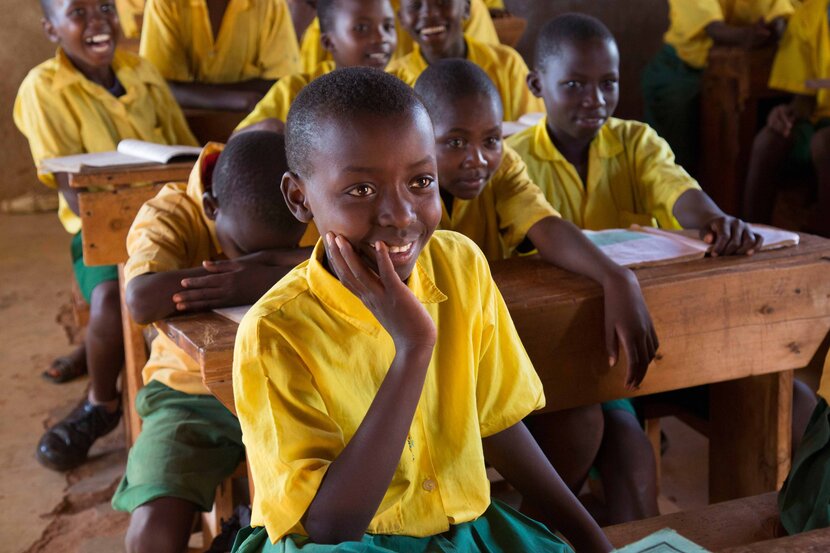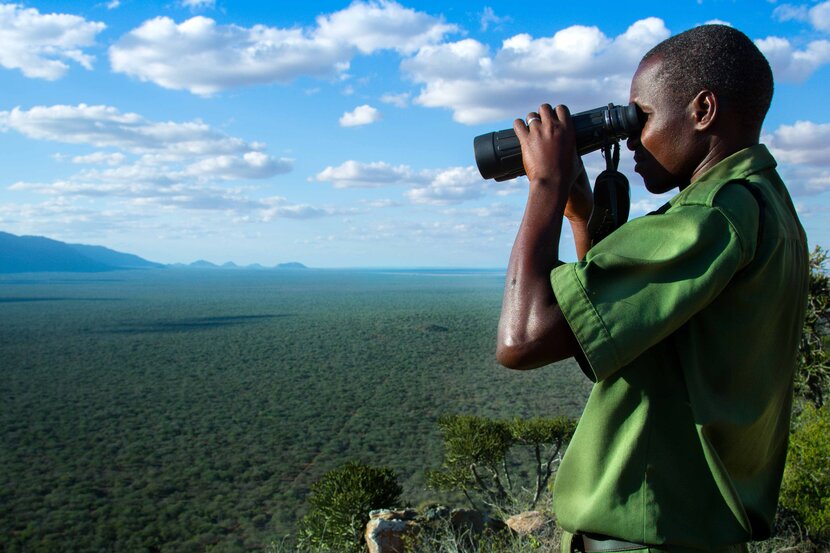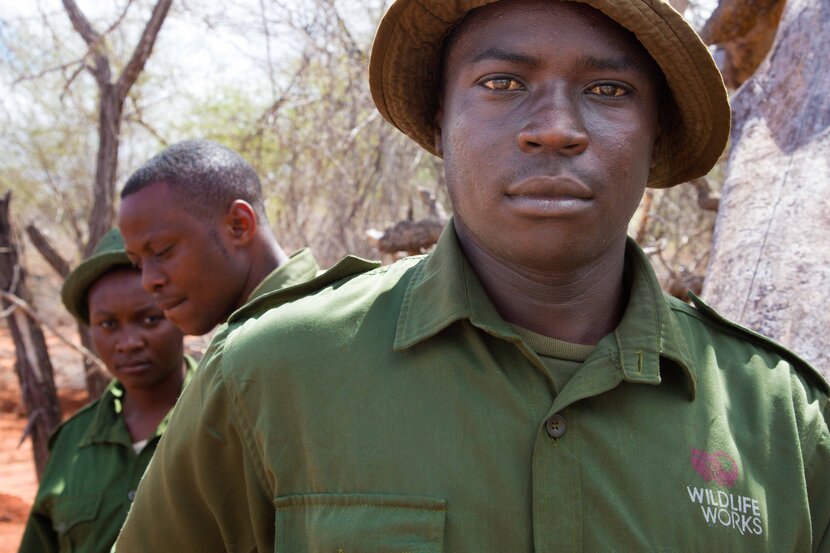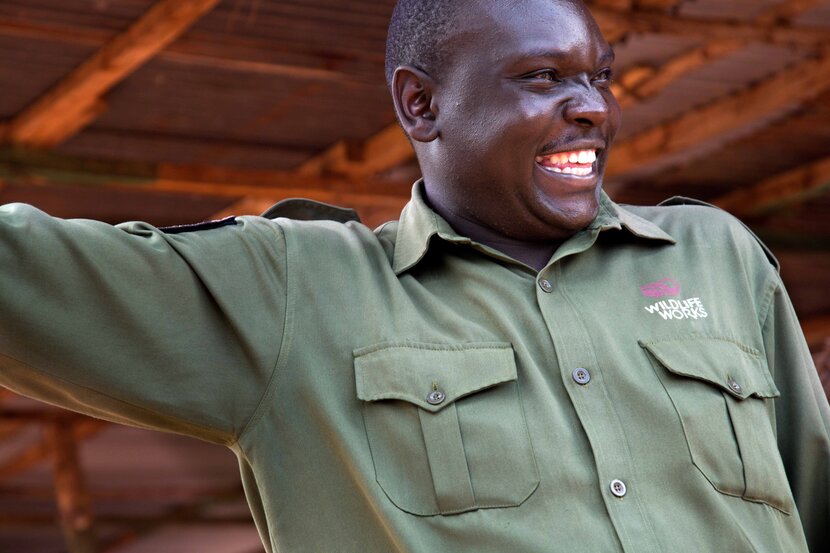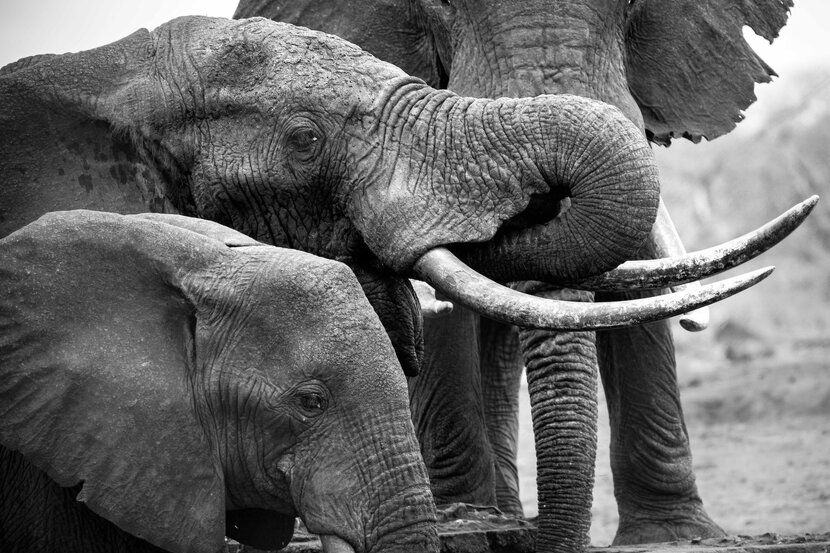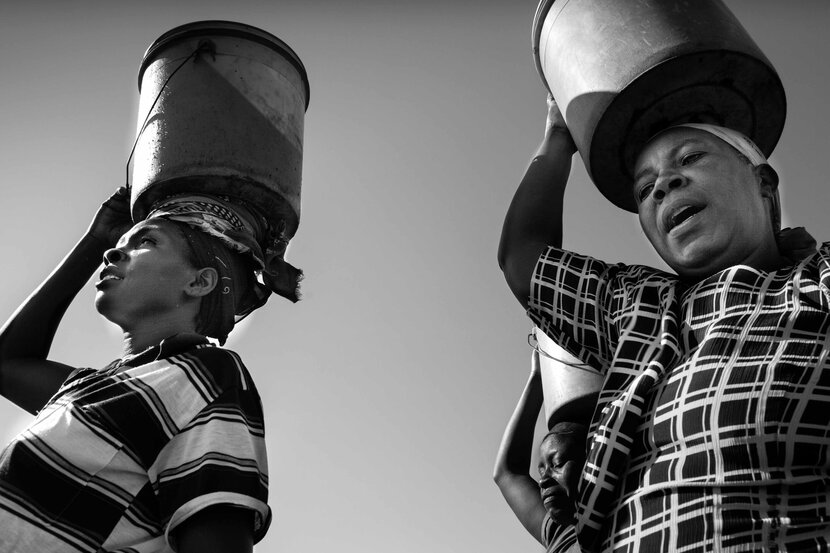
CLIMATE Protection
WE’RE TAKING ACTION
Recently published studies have found that the Gulf Stream has weakened dramatically. Climatologists agree that this development is likely to further intensify extreme weather events like floods, droughts, and storms. And that is just one of the many consequences of climate change.
What does that have to do with us? Quite a lot, actually. Every EU citizen generates eight tons of carbon emissions yearly. That’s a pretty abstract number. So here’s a comparison to make it more tangible: To limit global warming to under two degrees Celsius, that figure needs to be just one ton. Generally speaking, companies generate significantly more carbon emissions than individuals do. For example, through the energy-intensive production and transportation of their products.
Together with ClimatePartner
Of course, that also means that we’re in a position to make a particularly important contribution to reducing carbon emissions. And we’re working on doing just that, in collaboration with ClimatePartner.
The Munich-based company specializes in calculating and reducing carbon emissions and supporting global climate protection projects, an idea that we embrace whole-heartedly. Our cooperation with ClimatePartner is an important part of the deuter 360° Responsibility strategy and complements our other efforts to protect the environment.
The CLIMATEPARTNER certification

ClimatePartner's label certifies that unavoidable greenhouse gas emissions have been offset. For the sake of legibility, all emissions are referred to as CO2 emissions and measured in tonnes of CO2. By this, we mean CO2 equivalents, i. e. all relevant greenhouse gases.
Offsetting CO2 emissions is an important step in holistic climate action, alongside avoidance and reduction. ClimatePartner recommends companies establish and act on CO2 avoidance and reduction plans as a continuous process, and supports them in corresponding strategies. For example, by supporting in defining science based reduction targets, or switching to renewable energy.
Our CLIMATEPARTNER certifications at a glance
OUR HEAD OFFICE IN GERSTHOFEN IS CLIMATEPartner certified
Step by step to more climate protection. Since 2020, we have been calculating the location-specific emissions of our headquarters in Gersthofen in cooperation with ClimatePartner and reducing them by implementing structural and infrastructural measures. Additionally, we finance climate protection projects to offset the remaining emissions. Since 2021, we have been a ClimatePartner-certified company.
This certification for companies includes direct emissions caused within the company (electricity and heat generation, vehicle fleet, fugitive gases) and indirect emissions caused by purchased energy, business trips, and employee travel. Other indirect emissions that occur outside the company in the production of raw materials and intermediate products, external logistics and the use and disposal of products or other processes are not covered by the certification.

You can read more about the deuter company certification at ClimatePartner.
All deuter PRODUCTS ARE CLIMATEPARTNER-certified
What started in 2020 is now a reality: From summer 2025 season, all deuter products are ClimatePartner certified. The ClimatePartner certification process encompasses five stages: First, the CO2 emissions of a product or series are calculated. Next, measures for reducing these emissions are determined. This is done through the application of recycled materials and bluesign®-certified materials, and by adopting sustainable technologies. We also maximize the lifespan of our products by making them durable. The third stage involves offsetting emissions through the support of select climate projects. The fourth stage is where progress is regularly assessed, before a product is then finally given the ClimatePartner label. In this way, we are actively minimizing the climate impact of our products and adopting responsible business practices for the sake of people and planet.

You can read more about deuter's product certification at ClimatePartner.
Since its inception, 2,500 companies in 35 countries have joined ClimatePartner, including many in the textile industry. The valuable experience gained through this collaboration, combined with ClimatePartner’s expertise, make it much easier to implement actions.
Specifically, there are two steps we are taking:
1. Measuring our carbon emissions
We have collected our CO2 emissions data and calculated our corporate carbon footprint (CCF). That includes emissions from heating and electricity usage, employees’ daily commute to work, business travel, and even office supplies. In a pilot project, we’ve also figured out our product carbon footprint (PCF), by calculating emissions relating to the raw materials, packaging, logistics, and disposal involved in the pilot products and scaling them up to the entire collection.
2. Preventing and reducing carbon emissions
We strive to prevent and reduce our carbon emissions wherever possible. For example, to minimize our CCF, we offer our employees incentives to use a company bicycle or car pooling to get to work. Meanwhile, on the product side, we use recycled materials and spun-dyed fibers to significantly decrease our PCF.
We’ve developed a clear roadmap for implementing all of these measures. Our headquarters in Gersthofen, along with all our products—backpacks, sleeping bags, and accessories—are now ClimatePartner-certified.
Every time you choose a ClimatePartner certified product, whether from deuter or another manufacturer, you’re reducing your own carbon footprint. At the same time, you’re indirectly supporting a climate project. Does that sound good? Does it motivate you to do more to prevent climate change? If so, you too can reduce your carbon footprintl, through your travel and transportation choices and your eating habits.
Many climate protection projects that we support
As a ClimatePartner-certified company, we take responsibility and support climate protection projects worldwide that actively contribute to the reduction of CO₂ emissions. These projects range from reforestation measures and the promotion of renewable energies to the protection of valuable ecosystems. In this way, we contribute to global climate protection and also promote sustainable development in the respective regions.
🌍 Find out more about the projects we support and their positive impact:
🔗 Project 1 - Clean energy for a sustainable future
🔗 Project 2 - Cleaner energy and community benefits
Here’s an insight into our climate protection projects and global sustainability initiatives, with photos showcasing our efforts:
Climate protection vision
If you are interested in climate protection, you can read more about deuter's climate protection vision at the following link.
